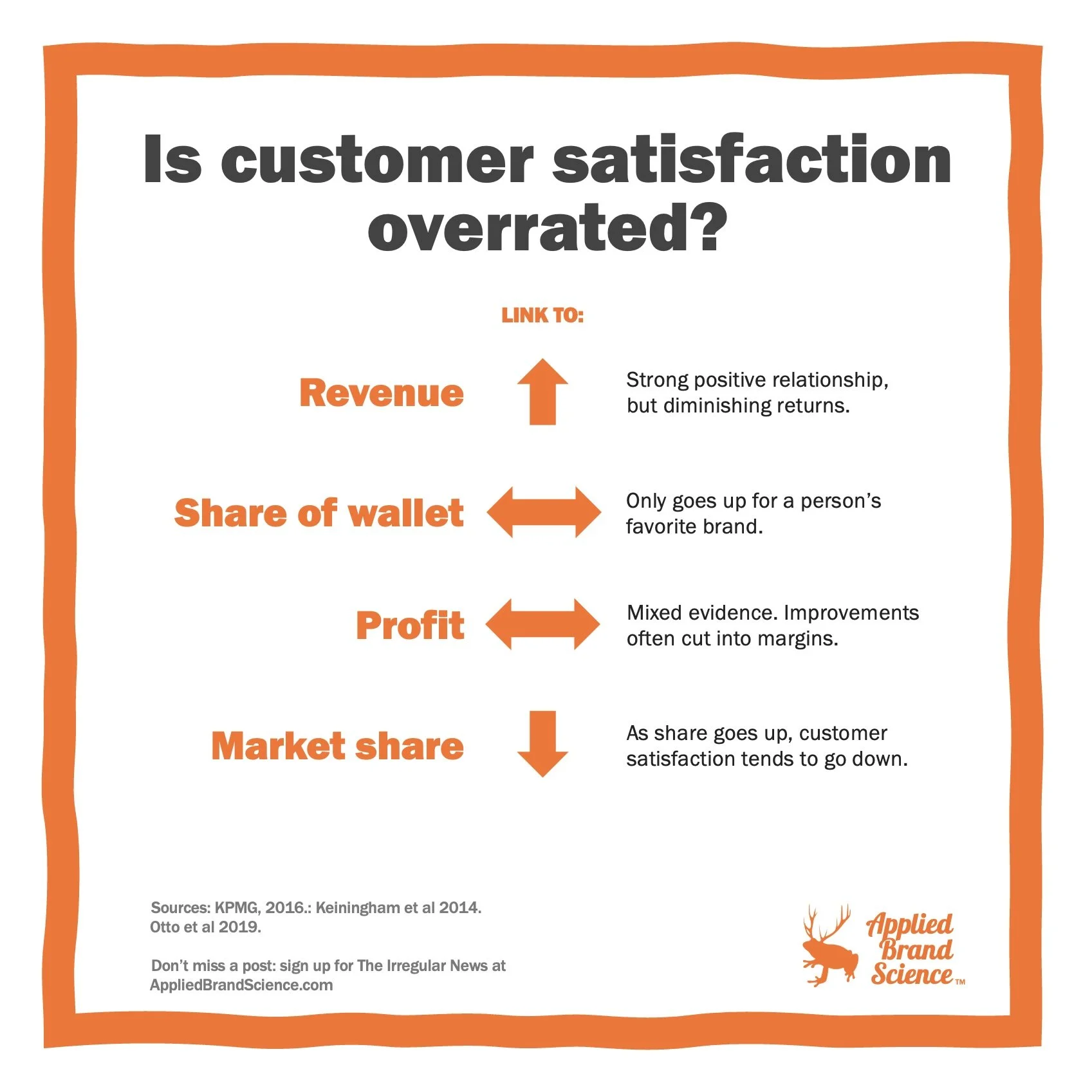Is customer satisfaction overrated?
Like, does it really matter if people say they’re ”highly satisfied” with your brand?
It turns out the evidence is… mixed.
On the one hand, there’s a strong positive relationship between satisfaction and revenue: make people happy, get more money. Makes sense.
But then things get murky.
F’rinstance, share of wallet (a precise way to measure ’loyalty’) only really goes up if people's preferred brand gets better. If it's a minor brand in their repertoire, it won't matter how much better it gets.
Profit also shows a mixed link to customer satisfaction. In part it’s because increasing customer satisfaction usually costs money. And that cuts into margins. So it’s not always a good idea to increase customer satisfaction “at any cost.” Nope.
Finally, market share tends to be negatively correlated with customer satisfaction. Why? Well, the “causal arrow” goes the other way: as market share increases (e.g., via new distribution), most brands are bought by a broader audience — which is bound to include more folks who are more “meh” and ”enh” and “nah” customers. Just ask Ticketmaster. Or Verizon. Or even Taylor Swift. (PS Folklore is still my fave.)
Caveats galore, of course. Most importantly, "satisfaction" can mean a bunch of things: love it, good enough, does what I figure it'll do, just fine for how I use it, etc.
But some LESSONS:
1. Be really clear what you’re measuring when you’re measuring "customer satisfaction".
2. If you can, check the relationship between customer satisfaction and other vital metrics for YOUR brand and YOUR category.
3. Do some math on — and experiments with — ways to increase satisfaction and what that might mean for important things like margins.

